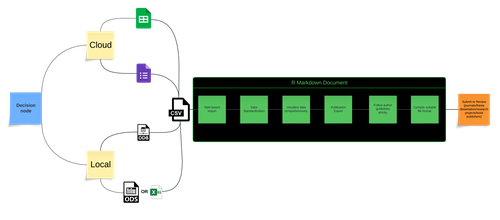
FERNEE Christianne
- Anthropology and Archaeology, University of Bristol, Bristol, United Kingdom
- Bioarchaeology, Computational archaeology, Physical anthropology
- recommender
Recommendation: 1
Reviews: 0
Recommendation: 1

An approach to establishing a workflow pipeline for synergistic analysis of osteological and biochemical data. The case study of Amvrakia in the context of Corinthian colonisation between 625-189 BC in Epirus, Greece.
Establishing a workflow for recording and analysing bioarchaeological data
Recommended by Christianne Fernee based on reviews by 2 anonymous reviewersThe paper by Xanthopoulos and colleagues [1] presents an approach to establish a pipeline for the analysis of osteological and biochemical data. This approach integrates novel data collection, FAIR principles for data longevity and accessibility, utilises R markdown and cloud webware. Following the changes recommended by the reviewers this paper presents a welcome contribution to osteoarcheology and bioarchaeology.
Osteoarchaeology and bioarchaeology often involves the collection of vast amounts of data both in the field and from consequential analysis in the lab. From this data we can reconstruct many aspects of past human experiences. However, issues often arise when bringing together these diverse types of data. In this regard, this paper proposes are useful methodology in which osteoarchaeological researchers can bring their data together as part of a streamlined process, from data collection to analyses.
References
[1] Xanthopoulos, K., Georgiadou, A. and Papageorgopoulou, C. (2024). An approach to establishing a workflow pipeline for synergistic analysis of osteological and biochemical data. The case study of Amvrakia in the context of Corinthian colonisation between 625-189 BC in Epirus, Greece. Zenodo, 11156506, ver. 3 peer-reviewed and recommended by Peer Community in Archaeology. https://doi.org/10.5281/zenodo.8298579